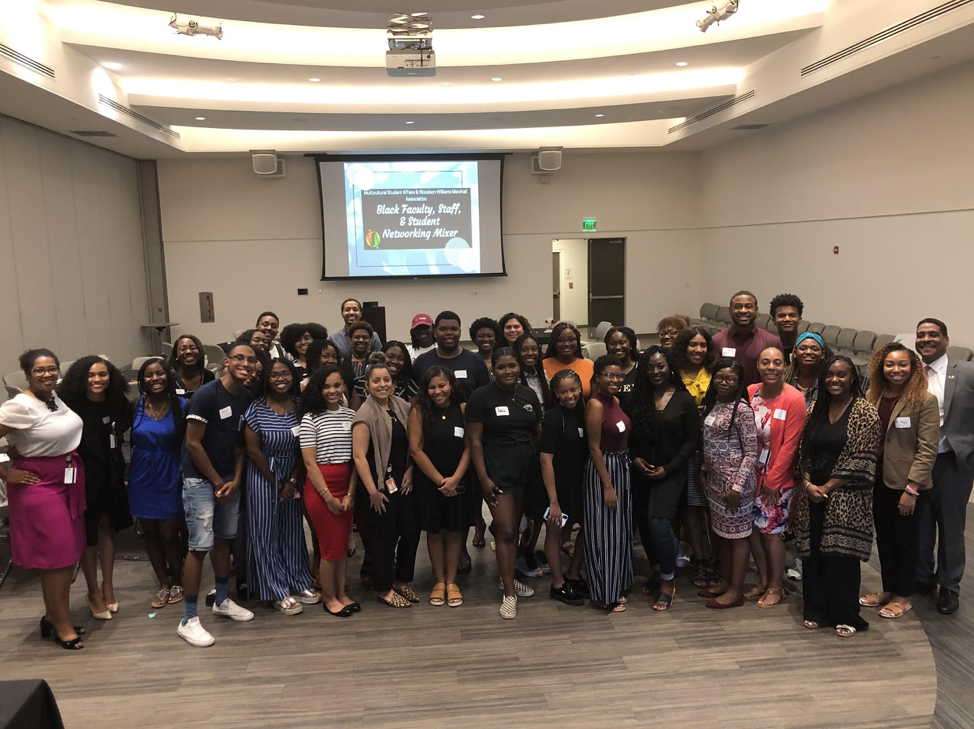
The University of Miami black faculty, staff and student mixer provided an opportunity for students to network with one another from 5:30-7:30 p.m. on Tuesday, Sept. 17 at The Grand Ballroom East in the Donna E. Shalala Student Center. The Woodson Williams Marshall Association (WWMA) partnered with Multicultural Student Affairs (MSA) to host this event.
The networking mixer provided an opportunity for students to network, build connections and fellowship with faculty and staff at UM. The icebreakers and table activities helped to get everyone comfortable and ready to socialize.
Kennedy Robinson, the assistant director of MSA, planned this annual event and says that this mixer is about making interactions with faculty that otherwise students may not have met and also potentially find a mentor or someone to relate to.
“Sometimes students often feel underrepresented or feel like they don’t have enough representation on campus,” Robinson said. “When you’re in spaces like this, you’re able to connect with different people.”
After the networking activities, all of the participants introduced themselves and gave a reason why they came to this event. Several students and faculty said that this event has provided a chance to be among family and see people that look like them.
WWMA is a small group of black administrators and faculty that focus on issues that black students and employees at UM face. This association connects with students through events, scholarships, and more. Robinson says WWMA is the central organization to connect black students with black staff.
“Being able to bring WWMA here helps to show that there is faculty commitment in this space,” Robinson said.
MSA student assistant, sophomore, and legal studies major, Landon Coles, said that knowing that there is a sense of community among the black population is the most rewarding aspect of this event.
“We have a very small black population at UM so it is important that we all have connections to one another,” Coles said. “We attend and work at an institution that was not built for people that look like us. Because of that, our presence and our connection to one another is more important than it ever has been.”






